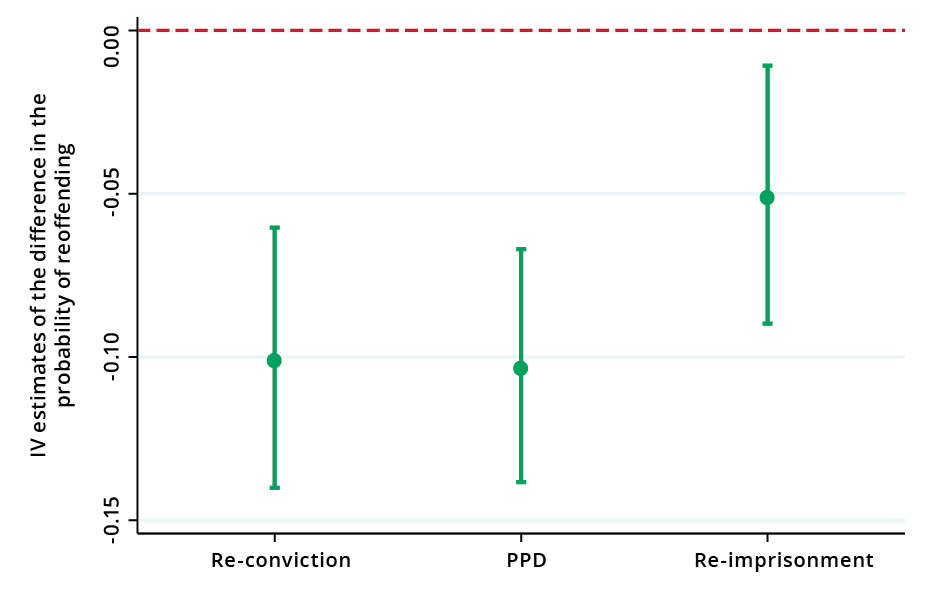Summary
Background
Adult recidivism poses a significant problem for the criminal justice system and remains an ongoing concern in Australia and worldwide. Parole supervision is one of the key strategies used by governments to assist ex-inmates to re-integrate into society. In addition to monitoring and sanctioning those who breach their conditions of release, parole authorities provide access to treatment and behavioural programs to address parolees’ criminogenic needs. Despite the widespread use of parole supervision, causal evidence for the effectiveness of parole in reducing recidivism is limited.
The aim of this study was to compare recidivism outcomes for inmates who were released to parole with those who were released from prison unconditionally. The study adopted an instrumental variable (IV) approach to measure the causal impact of parole on recidivism. The instrument used in this study was the proclivity of Local Court magistrates to sentence offenders to prison sentences with a non-parole period (at the end of which inmates are released on parole supervision) rather than a fixed prison term. Three recidivism outcomes within 12 and 24 months were measured:
- Re-conviction with a new, proven offence of any type;
- Re-conviction with a new personal, property or serious drug offence (PPD); and
- Re-imprisonment.
Key findings
The main IV estimates revealed that, for the marginal parolee, being released to parole reduces the likelihood of re-conviction within 12 months of release by 10.0 percentage points (a decrease of 17.5 per cent); reduces the likelihood of committing a personal, property or serious drug offence within 12 months of release by 10.3 percentage points (a decrease of 24.0 per cent); and reduces the likelihood of being re-imprisoned within 12 months of release by 5.0 percentage points (a decrease of 18.2 per cent). Additional findings suggested larger reductions in more serious re-offending for ‘high-risk’ and Aboriginal parolees.
Conclusion
Being released to parole reduces the likelihood that an ex-inmate will re-offend. Furthermore, the reduction in recidivism persists 24 months after release from prison.
